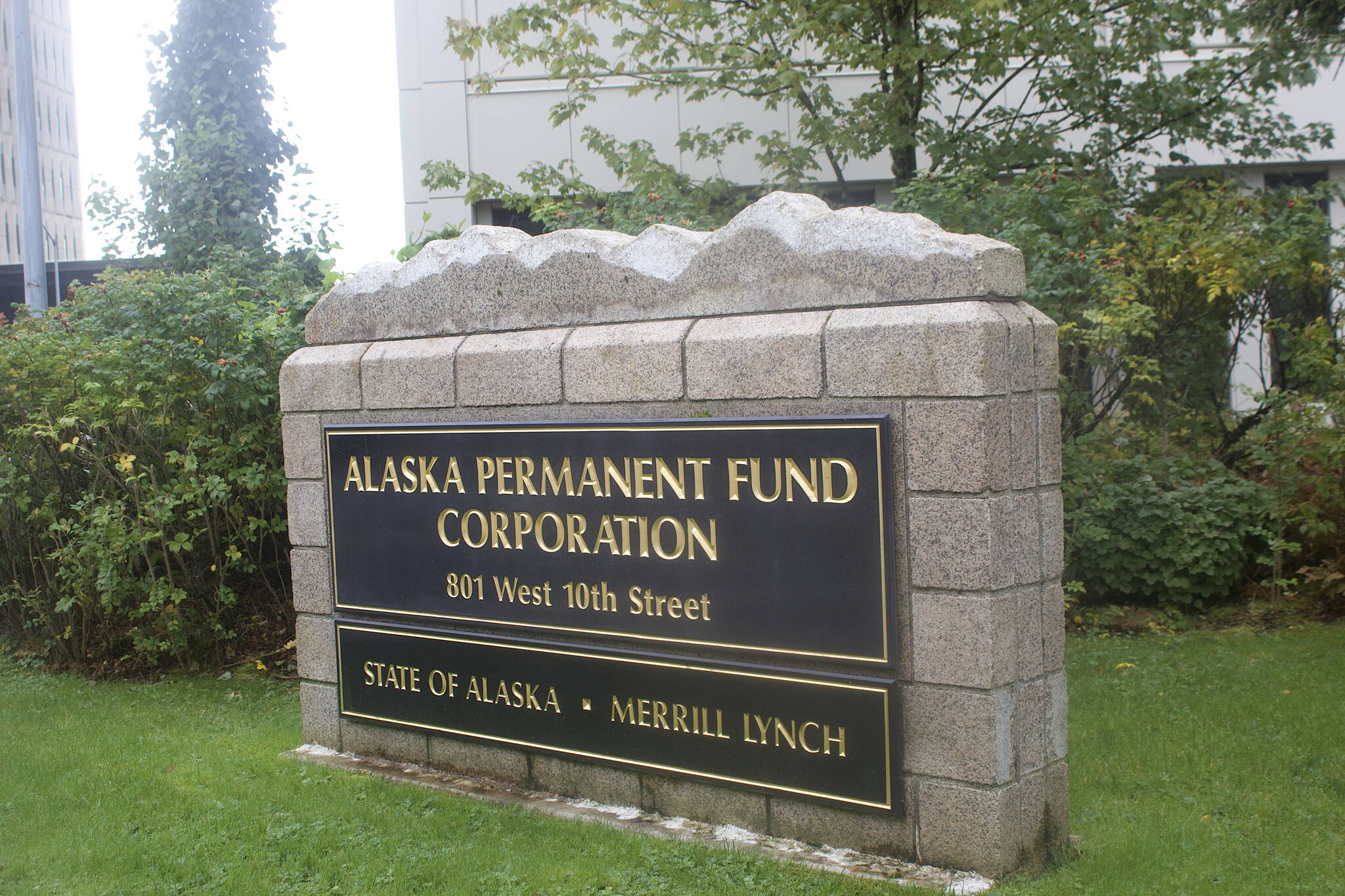The abrupt firing of Angela Rodell as executive director of the Alaska Permanent Fund Corp. last year was not influenced by Gov. Mike Dunleavy, contrary to Rodell’s accusations that was the case, according to an investigative report presented to state lawmakers Wednesday. But the report states the fund’s board of trustees didn’t follow the evaluation policy and process called for under its charter when firing Rodell, although their action was legal.
“The Trustees’ decision to terminate the Executive Director in December 2021 did not precipitate from any single event or occurrence,” the report states. “Rather, a series of circumstances — many of which were perceived differently by different Trustees — resulted in a majority of Trustees losing confidence in the Executive Director’s leadership.”
A key assertion in the report is Rodell’s firing was due to a loss of confidence in her leadership among trustees and employees, despite the fund’s strong financial performance under her leadership.
“Most of the trustees placed little to no emphasis on the performance,” said Howard Trickey, one of two attorneys with the law firm of Schwabe, Williamson & Wyatt who presented the investigative findings to the Alaska Legislature’s Legislative Budget and Audit and Committee. “They felt the investment team deserved credit. She was not directly responsible for that performance.”
Some committee members challenged that assertion, the failure of trustees to follow their formal policy, and the finding Rodell’s firing was for professional reasons rather than about political and/or personality differences.
“To me it sounds like it’s personality and performance that are conflicting with each other,” Rep. Chris Tuck, an Anchorage Democrat, told the attorneys.
Rodell, the corporation’s CEO from 2015 until 2021, has stated her firing was political retribution for opposing what she called Dunleavy’s plan to overdraw the fund to, among other things, allow for a larger Permanent Fund dividend. All five of the trustees voting to fire Rodell were appointed by Dunleavy.
The report, which cost the state $150,000, states problems between Rodell and the trustees date back to 2018, and the period six to nine months before her firing was especially contentious. Furthermore, trustees told the investigators concerns about attrition of investment and other Permanent Fund staff “would be a legally sufficient reason to terminate the employee,” said Christopher Slottee, the other attorney testifying during Wednesday’s legislative hearing.
Another reason cited for the firing was Rodell’s issuing of a news release in June of 2021 during an impasse in budget negotiations “explaining the negative consequences that a shutdown would have on APFC’s operations and investments,” according to the report.
“Several trustees viewed the release as overtly and improperly political, and unnecessarily drawing APFC into a dispute with the executive and legislative branches,” the report states. “These Trustees saw the press release as an attempt to embarrass the Governor and evidence of poor judgment.”
However, the report adds, “the Executive Director had issued a substantially similar press release during a budget impasse in 2017 and Trustees at that time did not express any concerns that it was improper.”
Slottee, responding to questions from a couple of committee members about the trustees not following official charter policy, stated it generally isn’t recommended such officials take action in such a way, but it is legally permissible.
“I think it would probably be accurate to say they did not follow policy (and) they did not adopt any former change to p0licy,” he said. However, “the board has the ability to change its policies. It can do so formally or informally.”
“There is no way of knowing if following the policy in 2021 would have had any different result” in Rodell’s evaluation and firing, Slottee said.
In addition to the trustees not following their official policy, “some of the concerns contributing to the Trustees’ loss of confidence were not accurately perceived or supported in fact, but nevertheless appear to have been sincerely held,” the report states.
Both Rodell and the trustees agreed on some aspects of their disagreements in interviews with investigators.
“For example, both the Trustees and Executive Director acknowledged the existence of stressed relationships between the Executive Director and certain Trustees, and between the Executive Director and some of APFC’s investment staff, although the latter relationships appeared to be improving,” the report states. “The Executive Director was not necessarily the cause or source of these stressed relationships, some of which inhered in the structure of the APFC. But the tense relationships, in and of themselves, were cited by several Trustees as important to their deliberations about moving in a new direction.”
While the investigative report states “there is no direct or circumstantial evidence that the Governor directed the Trustees to terminate the Executive Director,” officials in the governor’s office were informed ahead of time Rodell was likely to be fired, according to the report. However, there was no evidence anyone in the office, including the governor, were told definitively ahead of time the firing would occur.
The fund’s board of trustees is scheduled to select a new CEO from three finalists during a meeting Monday in Juneau. The acting CEO is Valerie Mertz, the fund’s chief financial officer since 2012.
• Contact Mark Sabbatini at mark.sabbatini@juneauempire.com

